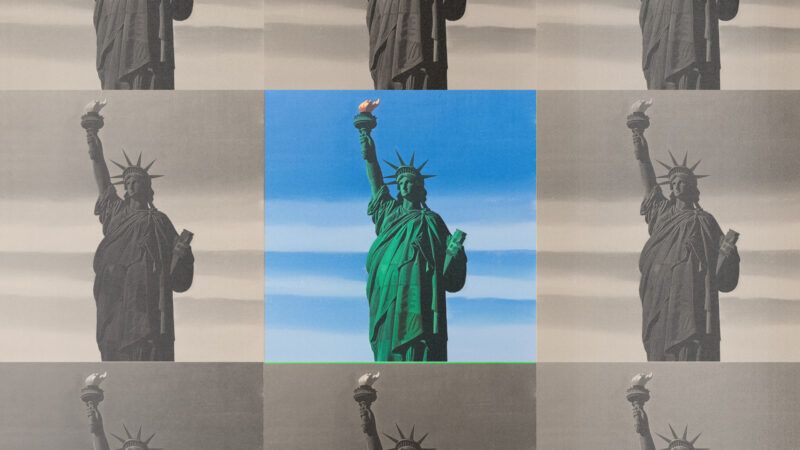Juneteenth Is a Celebration of Freedom
The holiday represents a page-turning from one of the most shameful chapters in American history.

We understandably think of slavery in terms of the brutal terms of which it consists. But it can also be properly understood by what it lacks: freedom—over where someone can work, can live, can move. Just as darkness is the absence of light, enslavement is the absence of liberty. By any measure, Juneteenth, the holiday today that commemorates the abolition of chattel slavery in the U.S., is a good day.
On June 19, 1865, about two and a half months after the Civil War had ended, Maj. Gen. Gordon Granger set in motion the final enforcement of the Emancipation Proclamation—which President Abraham Lincoln had signed over two years prior—alerting slaves in Galveston, Texas, that they were no longer in bondage. Some slaves in the U.S. would remain in captivity until the Thirteenth Amendment was ratified in December 1865, and even afterward, that's not to say their newfound freedom was all that free; they would go on to face yearslong, enormous barriers to equality and liberty. Still, Juneteenth represents a page-turning from one of the most shameful chapters in American history.
That is the epitome of a cause worth celebrating, irrespective of where someone falls on the political spectrum. Yet it has not been entirely without controversy. About 43 percent of Republicans, for example, reportedly oppose its inclusion in school curricula when compared to 89 percent of Democrats who support it, according to a YouGov poll. Though it's hard to know precisely why, it may come down, at least in part, to ever-present culture war fracturing. The GOP in some sense still fashions itself as the party of freedom. Slavery, again, is the absence of freedom. In theory, learning about the history behind Juneteenth should buttress, not detract, any platform that claims to advocate for liberty.
On the flip side of the coin, as Reason's Elizabeth Nolan Brown outlined in 2022, there are continuing discussions around the notion that Juneteenth should essentially be reserved for black people—that it is not something that can unite Americans. African Americans were the ones who suffered under slavery, after all, impacting families for generations. But to argue that the celebration of its abolition is exclusive based on race is to dignify some of those fears that this is somehow a partisan or divisive topic. I would like to think these objections exist more on the outskirts. Slavery is bad. Freedom is good.
Opal Lee, the 97-year-old "grandmother of Juneteenth" who fought for the holiday's recognition, agrees it really is that simple. "It means freedom for everybody. Not just Black folk or Texas folk," she said. "Freedom for everyone." When Lee was 12 years old, a mob of hundreds arrived at her house in Fort Worth, Texas, smashing windows and furniture, angered that a black family had moved in. The day? June 19. Last week, she got the keys to her new house, built by Habitat for Humanity, on that same lot. It's a reminder that these dark periods were really not very long ago.
Even across that time, though, freedom was supposedly core to American exceptionalism, despite that we quite clearly did not live up to that. But to this day, it has mostly survived as the ideal this country should chase. That's not to say it means the same thing to everyone; people of different persuasions have very different views of what a free society should look like.
But there is one thing freedom cannot mean: slavery. Its death is a victory for everyone.


Show Comments (102)